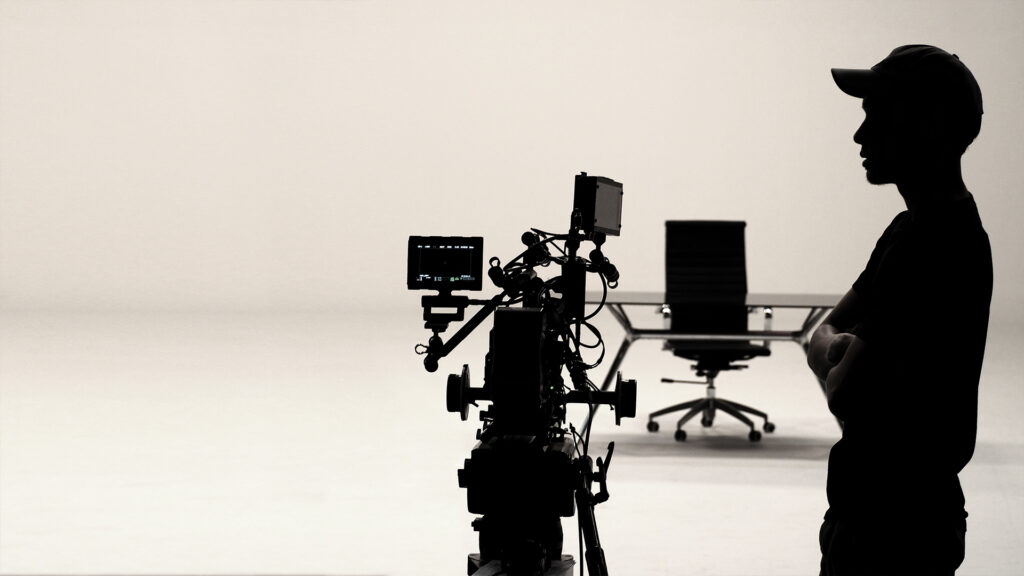How to Hire the Right Team for Your Movie

Filmmaking is a collaborative art form, and assembling the right crew is a critical step in bringing your cinematic vision to life. Whether you’re a seasoned filmmaker or a first-time director, knowing how to hire a skilled and dedicated crew is essential for a successful production. Here we’ll walk you through the process of hiring a crew for your movie, from defining your needs to conducting interviews and building a cohesive team.
1. Define Your Project’s Needs
Before you start hiring, it’s crucial to have a clear understanding of your project’s requirements. Consider the following factors:
- Project Type: Is your project a feature film, short film, documentary, or something else?
- Genre: Different genres require different expertise. A horror film may need a makeup artist skilled in special effects, while a period drama may require historical accuracy.
- Budget: Your budget will impact the scale and scope of your crew. Determine what you can afford for each department.
- Timeline: Is your project on a tight schedule, or do you have flexibility for long-term commitments?
2. Create a Crew Roster
Based on your project’s needs, create a list of the key crew positions required for your film. Common positions include:
- Director: The visionary leader responsible for guiding the entire production.
- Producer: Oversees budget, scheduling, and logistics.
- Cinematographer (Director of Photography): In charge of the visual look of the film.
- Production Designer: Manages the film’s overall visual aesthetic, including sets, props, and costumes.
- Editor: Shapes the final story through the assembly and arrangement of footage.
- Sound Designer: Responsible for recording and editing audio.
- Gaffer and Grip: Handle lighting and camera support.
- Makeup and Costume Artists: Create character appearances.
- Art Director: Assists the production designer in executing the visual style.
- Assistant Directors (ADs): Assist the director in coordinating logistics and scheduling.
3. Determine Your Hiring Approach
Decide whether you’ll hire crew members on a freelance basis or through a production company. Freelancers provide flexibility, but you may need to manage logistics such as contracts, insurance, and payroll. Production companies can streamline the hiring process but may come with higher costs.
4. Create Job Descriptions
For each crew position, craft detailed job descriptions outlining responsibilities, qualifications, and expectations. Clearly communicate your project’s vision, goals, and artistic requirements to attract the right candidates.
5. Network and Seek Referrals
One of the most effective ways to find talented crew members is through networking and referrals. Reach out to industry contacts, attend film-related events, and ask colleagues for recommendations. Personal connections can lead you to individuals with proven skills and reliability.
6. Use Online Platforms
Online platforms like Mandy Network, ProductionBeast, and LinkedIn can be valuable resources for finding crew members. These platforms allow you to post job listings, review resumes, and connect with potential candidates from a broader pool of talent.
7. Review Portfolios and Resumes
As applications come in, review portfolios, resumes, and reels. Look for relevant experience, specialized skills, and a demonstrated commitment to their craft. Take note of any awards, recognitions, or film credits.
8. Conduct Interviews
Interviews are a critical step in assessing a candidate’s suitability for your project. Ask questions about their experience, creative approach, and availability. Inquire about their interest in your project and gauge their enthusiasm.
9. Check References
Always check references to verify the candidate’s qualifications and reliability. Contact previous employers or collaborators to gain insights into their work ethic and professionalism.
10. Evaluate Compatibility and Team Dynamics
Assess how well each potential crew member will fit into your team. Compatibility and a collaborative spirit are crucial for a smooth production process. A cohesive crew can enhance creativity and productivity.
11. Negotiate Compensation and Contracts
Once you’ve identified the right candidates, discuss compensation and contract terms. Be transparent about pay rates, working conditions, and any potential overtime. Ensure that contracts are clear, legally sound, and protect both parties’ interests.
12. Consider Diversity and Inclusion
Diversity and inclusion are essential in modern filmmaking. Strive to create a crew that reflects a range of backgrounds, perspectives, and experiences. A diverse team can bring fresh ideas and enrich your project.
13. Foster Open Communication
Establish open lines of communication from the beginning. Encourage crew members to share their ideas, concerns, and feedback. Effective communication promotes a positive working environment and enhances the final product.
14. Manage Logistics and Scheduling
Coordinate logistics and scheduling with your crew to ensure a smooth production process. Use production management software or apps to keep everyone informed about call times, locations, and changes to the schedule.
15. Conduct Rehearsals and Collaborate
Before production begins, conduct rehearsals and meetings with key crew members. Collaborate to refine the artistic vision and clarify roles and responsibilities. A well-prepared crew will be more effective on set.
16. Support and Encourage Growth
Encourage professional growth within your crew. Recognize and reward exceptional work, provide opportunities for skill development, and foster an environment where crew members can thrive.
Hiring the right crew is a fundamental step in bringing your cinematic vision to life. By defining your project’s needs, creating job descriptions, networking, conducting interviews, and fostering a collaborative environment, you can assemble a talented and dedicated team that shares your passion for filmmaking. Remember that successful filmmaking is a collective effort, and a well-chosen crew can be the key to a memorable and impactful movie.




